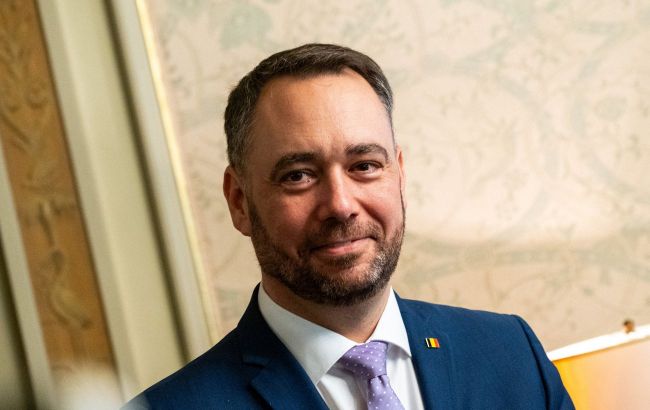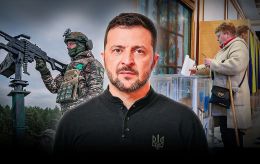Belgium ready to join peacekeeping mission in Ukraine, Foreign Minister says
 Photo: Belgian Foreign Minister Maxime Prévot (Getty Images)
Photo: Belgian Foreign Minister Maxime Prévot (Getty Images)
Belgium is ready to send its troops to Ukraine as part of a peacekeeping mission after the war with Russia ends, stated Belgian Foreign Minister Maxime Prévot during a press conference after a meeting with ministers from the Benelux countries in Odesa.
According to him, once a decision on a ceasefire in Ukraine is reached, Belgium will be prepared to take part in international forces under an appropriate international mandate.
"I will discuss this with the government and especially with my colleague, the Defense Minister, to determine what exact military contribution we can provide. But we are ready to join such peacekeeping forces when it becomes necessary," Prévot said.
Sending troops to Ukraine
On August 18, US President Donald Trump met with Ukrainian President Volodymyr Zelenskyy and European leaders at the White House. The main topic of discussion was security guarantees for Ukraine.
Allies considered the possibility of security guarantees similar to NATO’s Article 5, but outside the Alliance framework.
During the talks, President Trump confirmed US participation in these guarantees but emphasized that the main burden should fall on European partners, ruling out the deployment of American troops to Ukraine.
Instead, the Coalition of the Willing announced its readiness to deploy deterrence forces in Ukraine. Following the White House meeting, around 10 countries agreed to send troops to Ukraine. The coalition will also send military planners to the US for consultations.
Germany stated it does not rule out the deployment of its military contingent to Ukraine, while the United Kingdom explicitly stressed it is ready to send troops within the first week after a potential peace agreement or ceasefire with Russia takes effect.
Estonia is ready to send a military peacekeeping contingent consisting of one company to Ukraine.
Meanwhile, Polish Defense Minister Władysław Kosiniak-Kamysz said his country would not send troops to Ukraine. According to him, Poland’s key tasks are to protect NATO’s eastern flank, guard the Polish-Belarusian border, where 5,000–6,000 troops are permanently deployed for security, and provide infrastructure and logistics for a potential peacekeeping mission.
Greek government spokesman Pavlos Marinakis also stated that Greece would help in such an effort, but not with troops.
Latvian President Edgars Rinkēvičs said it is premature to discuss sending troops to Ukraine. According to him, a peace treaty must first be signed and its key elements clarified, including security guarantees and the role of European countries.

